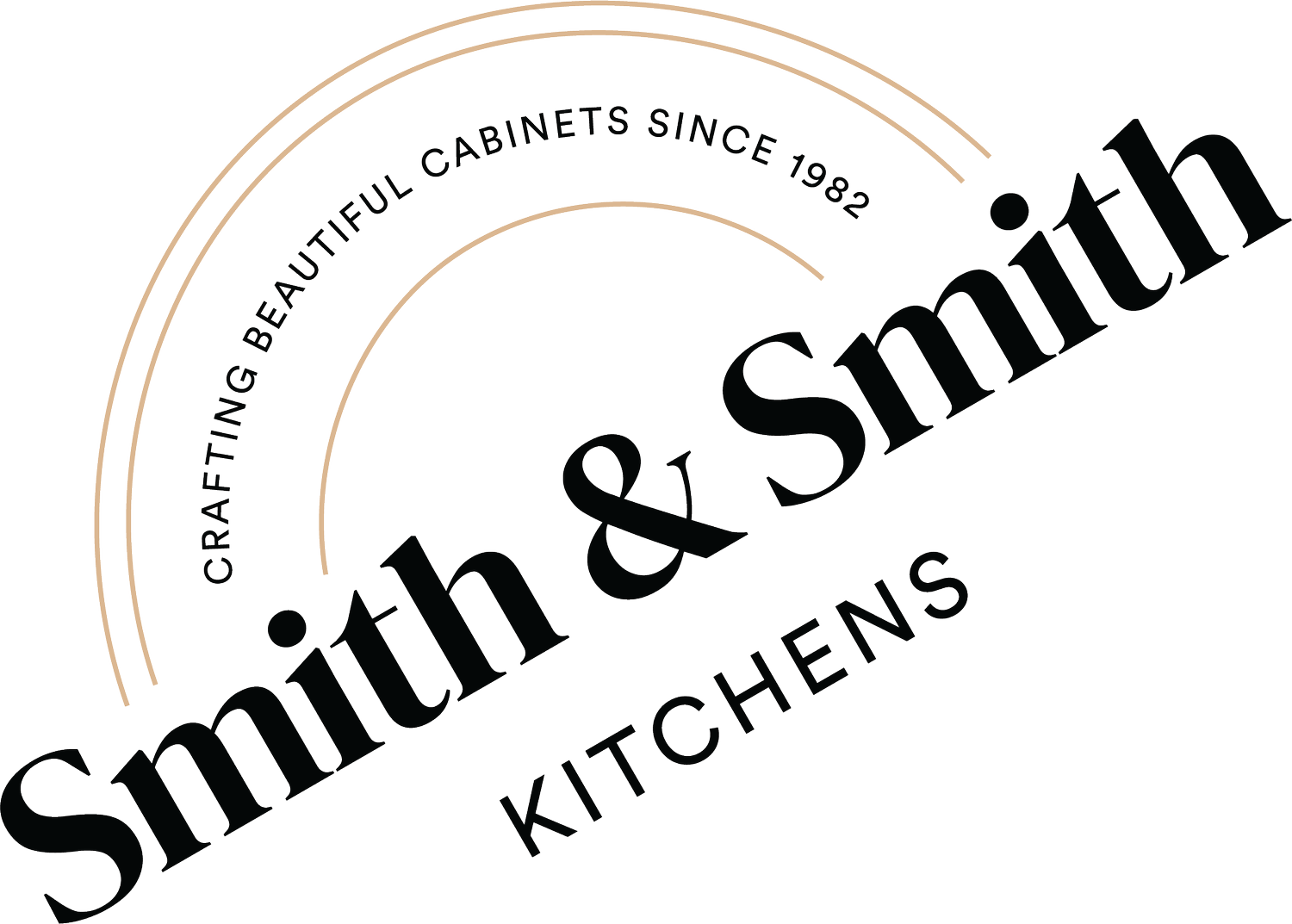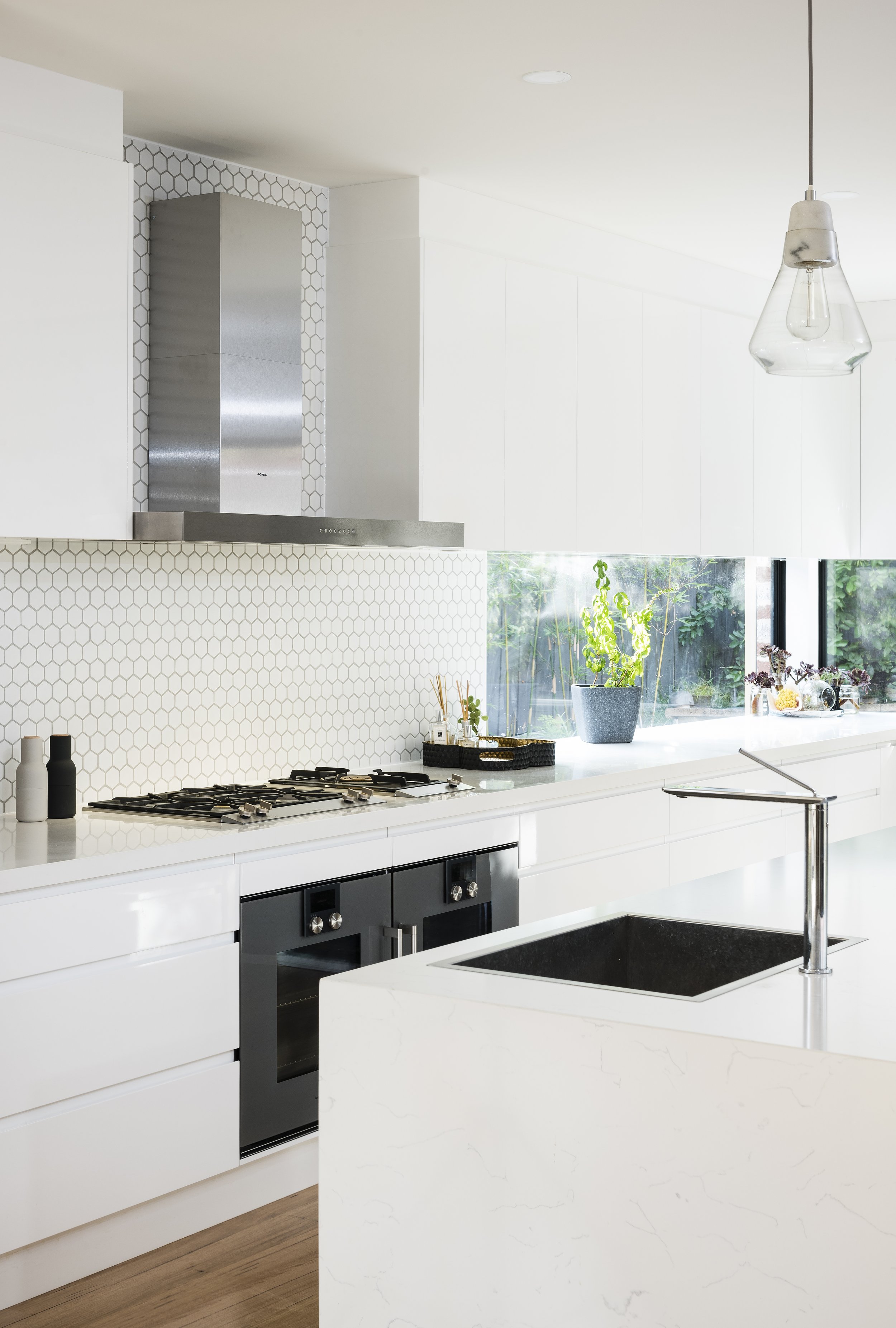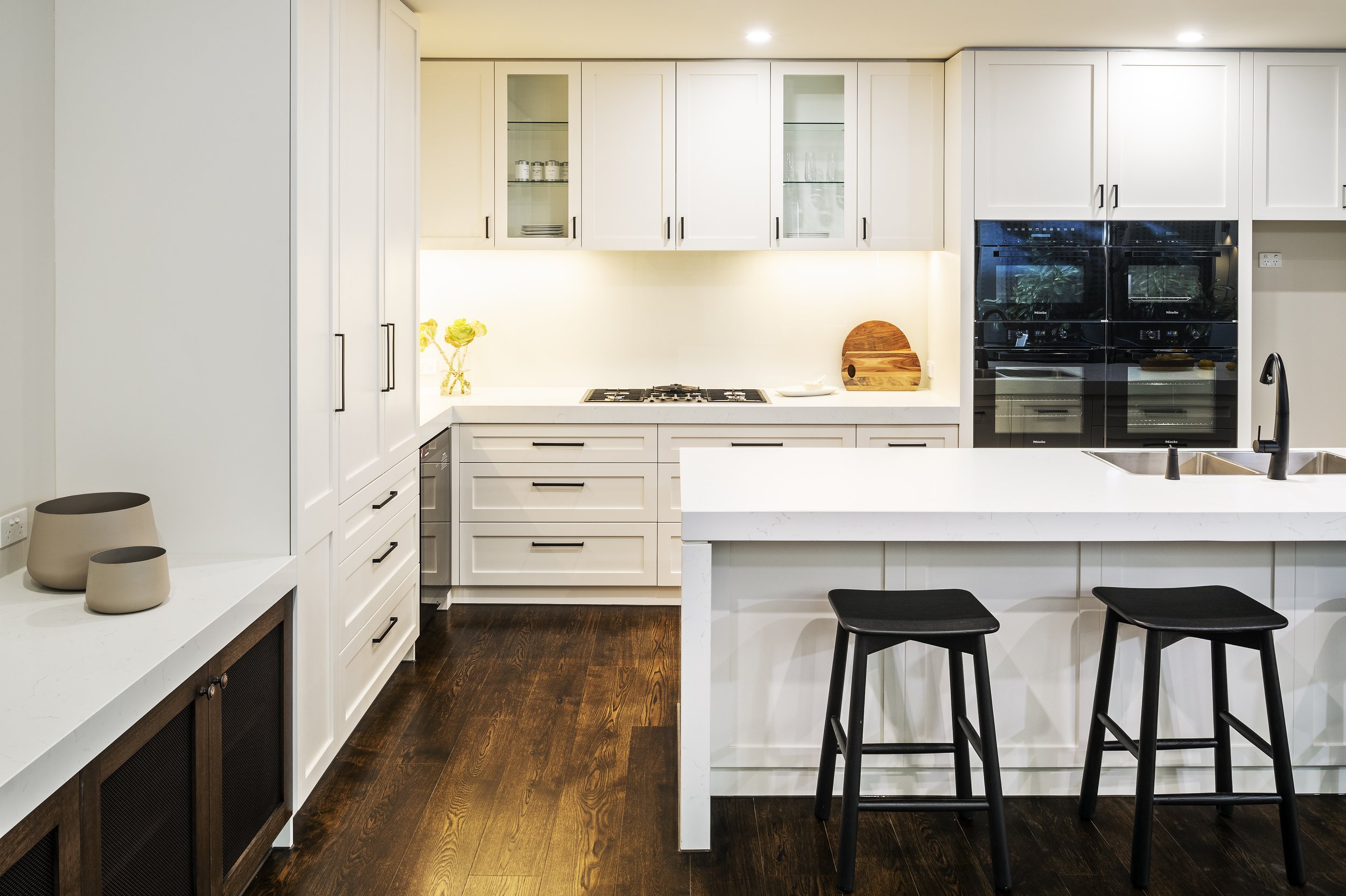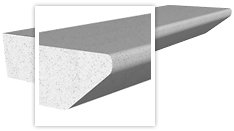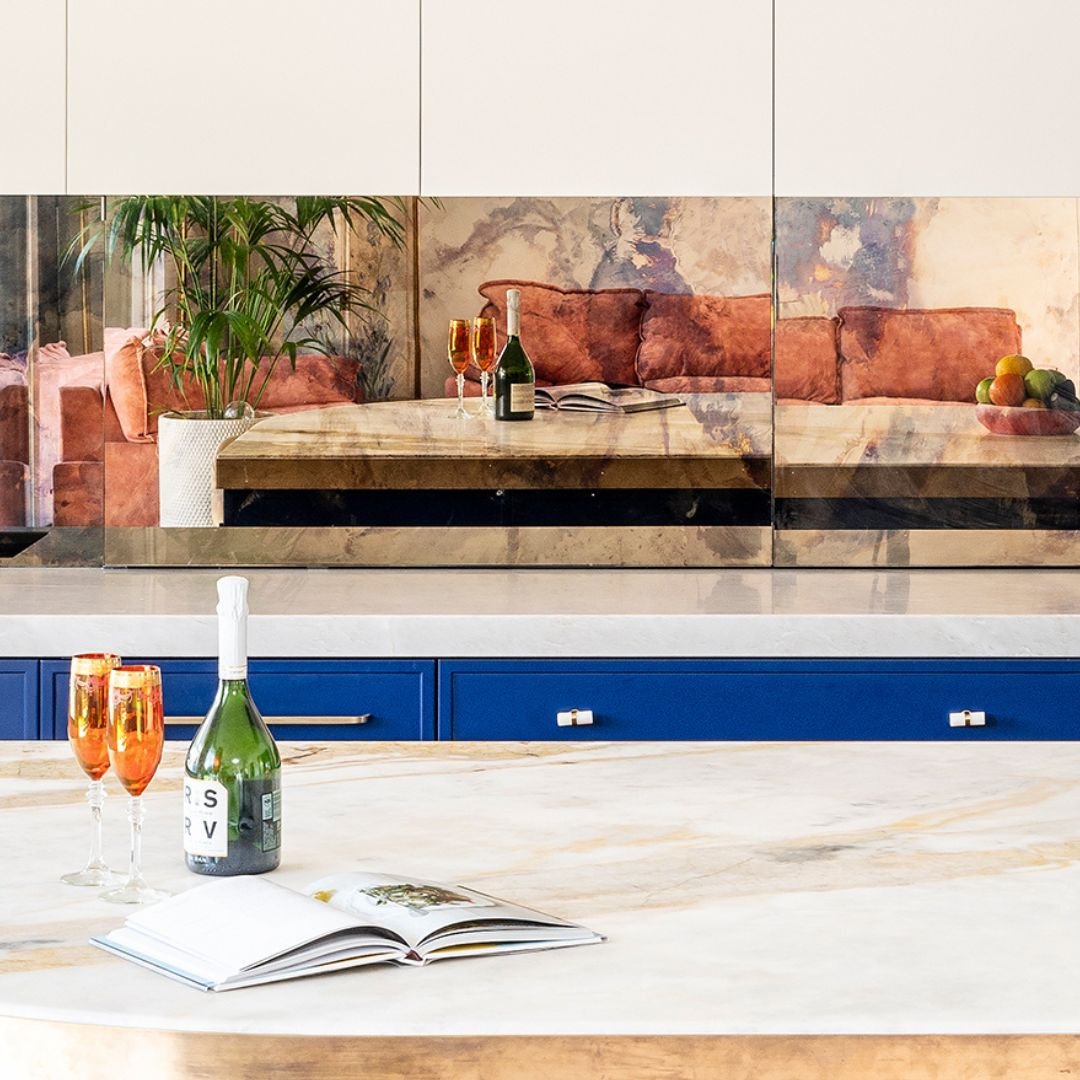
Kitchen bench tops are subject to the most rigorous work in a kitchen. Aside from the floors, the bench takes the greatest beating of the surfaces present.
No material is completely impervious to scratches & dents, heat & chipping. Some care must be taken with all materials. It is merely a matter of the type of attention you are willing to devote to maintenance.
TYPES
LAMINATE BENCHTOPS
Laminate bench tops are very common because of their durability, availability, price, colour & finish options. Smith & Smith deal with all the major laminate suppliers. The only difficulty in using laminate is in choosing a colour from their vast ranges!
Never place hot pans or chop directly on a laminate surface. Trivets should be used under hot pans & chopping boards should always be used when knives are out. Laminate will scratch & chip if handled roughly, however with normal kitchen usage it wears very well & should look great for years.
Egger
Formica
Laminex
Wilsonart
Duropal
Polytec
SOLID TIMBER BENCHTOPS
Smith & Smith handcraft all timber bench tops fitted to their kitchens. Solid timber bench tops give a unique finish to match a variety of styles, from the traditional to ultra-modern. Smith & Smith bench tops are usually coated in two-pack polyurethane or wood oil to give them protection.
Hot pans should always be placed on a trivet, & a chopping board should be used during food preparation. Prolonged hours of direct sunlight may alter the colour of a timber bench top, discuss bench top placement with your designer.
NATURAL STONE BENCHTOPS
Natural stone is beautiful, heatproof & resistant to scratches & nicks. Because natural stone is not formed by a machine, there are natural variations in colour & patterning – these variations are to be celebrated. If a uniform look is desired, engineered stone provides greater uniformity of colour, pattern & texture.
All-natural stone is porous & therefore subject to staining from oils & other ingredients. If care is taken to place clingfilm over the bench (Wiping the bench top with a damp cloth before applying the clingfilm ensures it stays in position) before rolling out pastry & ensure cooking splashes & spills are wiped up swiftly, your natural stone bench top will look beautiful for years.
GRANITE
A natural stone that provides a unique look. Only slightly less porous than Marble.
MARBLE BENCHTOPS
Beautiful natural stone that looks magnificent, however, it is rather porous, so any stains should be wiped off immediately. It also needs to be resealed more often than granite. While resealing must be performed often, it is as easy as wiping down your bench! Ask your designer about the various sealers available.
STAINLESS STEEL
Extremely hygienic & often found in commercial kitchens as it is very easy to keep clean & capable of withstanding very high temperatures. If you’ve had a stainless steel kitchen sink & draining board, you know how handy it can be to quickly plant a hot oven tray on it when your hand is starting to burn!
The largest drawback of this type of bench top is that it tends to scratch & dent relatively easily. Over time it will develop a patina that hides large scratches & dents. If you go for stainless steel, it is important to be aware that it is not going to have a pristine brushed look forever.
RECONSTITUTED STONE BENCHTOPS
A stone composite bench top is made up of approximately 95% stone powder/crushed stone & 5% binding agent. It’s extremely durable & able to withstand extremely high temperatures & is much less porous than natural stone.
LITHOSTONE
Lithostone has a wonderful range of on-trend colours. It is highly resistant to stains & scratches.
See the Lithostone website for more information.
CAESARSTONE
Caesarstone is made from a combination of natural stone & a binding agent. It is highly resistant to staining & scratches. A great range of colour options is available.
See the CaesarStone website for more information.
SOLID SURFACE BENCHTOPS
Solid surface bench tops combine natural minerals with an acrylic binding agent, making them beautiful & hardwearing. Seamless joins can be achieved making this an excellent product for long island bench tops. Many colours can be re-finished if damaged for a perfect surface. Sinks can be integrated into solid surface bench tops, leaving no groove for mould to form in. It can also be curved up walls or rolled down bench tops for interesting effects.
MEGANITE
Meganite is highly durable & comes in a range of beautiful colours & finishes.
See the Meganite website for more information.
CORIAN
Corian is made of natural minerals combined with an acrylic binding agent. It is highly durable & can be formed in artistic ways. It is non-porous, therefore somewhat resistant to staining.
See the Corian website for more information.
LARGE FORMAT PORCELAIN
Large-format porcelain is new on the benchtop scene, but surprisingly so given it’s as old as the hills in smaller tile format. Large-format porcelain has great looks & impressive durability. In addition to benches, it can also be used on floors & walls – as with porcelain tiles.
There are a great number of textures, colours & patterns to choose from including rusted metal, timber & of course stone. Porcelain does not scratch easily, & it is heat resistant. While we always recommend the use of chopping boards, you can go ahead & put your hot pans directly on this surface without worry.
The other major drawcard of porcelain is that it is remarkably thin. The only thing porcelain cannot do is print its pattern throughout the sheet. If draining runnels are required, they will reveal the inner solid colour of the porcelain.
BENCHTOP EDGES
SEE MORE FEATURES
DESIGN TRENDS DELIVERED TO YOUR INBOX
Our design experts have curated their favourite trends & need-to-knows when renovating your kitchen.
